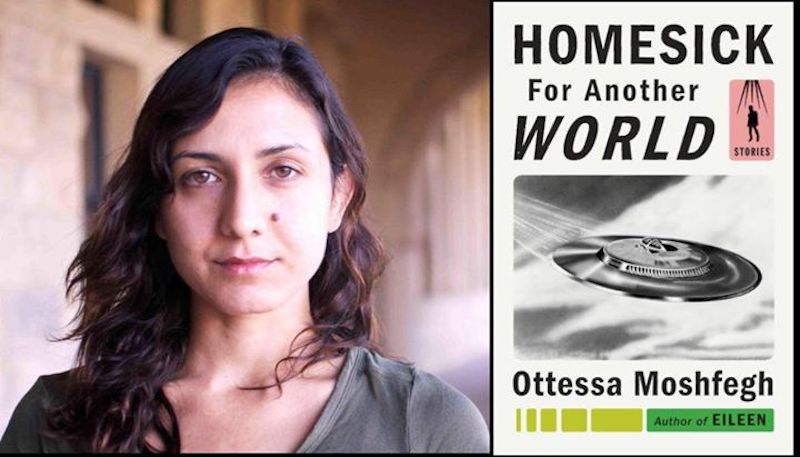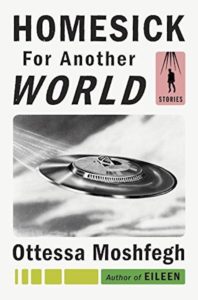

“…her stories exploit the fun, singsong qualities of storytelling while peddling a manic savagery that doesn’t fit the medium … Like her peers—Tao Lin, Nell Zink, Alexandra Kleeman—Moshfegh writes characters who shrink big feelings into flat utterances, the kind of disaffected tone that feels born of the internet and its mechanisms for emotional distance. The overall effect is of an ancient fairytale performed by bad television actors, the kind who seem to be makeup all the way through … Moshfegh repeatedly subjects the human body to extreme experiences: miscarried pregnancies, intellectual disability, eating disorders. This is not a very modern thing to do, because it is cheap and sadistic. But it is a very postmodern thing to do, because no body is blank and healthy and symbolically normal in real life … Moshfegh’s stories end with heavy clangs, which makes them feel like fables. But they’re knitted so airily throughout that they also feel like advertisements … Nell Zink writes like this, and so do Helen DeWitt and Alexandra Kleeman and Tony Tulathimutte. Such books refract ordinary life into the grotesque surreal through their insistent lack of engagement. Although they would find it unpleasant to be grouped by name, I’d call them surreal minimalists. These novelists are the grandchildren of Camus, writers who estrange and estrange until some new world comes glowing through the old, empty one. The emotions are minimal, but the worlds of these novels are colorful and weird. These writers represent the first wave of novelists who truly respond to and incorporate the syntactic and emotional influence of the internet, and our embrace of them, as readers, represents the same. Homesick for Another World abuses its chosen genre, just as Moshfegh intended, but in the way that Dr. Frankenstein abused his raw materials. Raw and red and sutured, his monster was tortured into consciousness, to live.”
–Josephine Livingstone, The New Republic, January 11, 2017
Read more of Josephine’s reviews here

